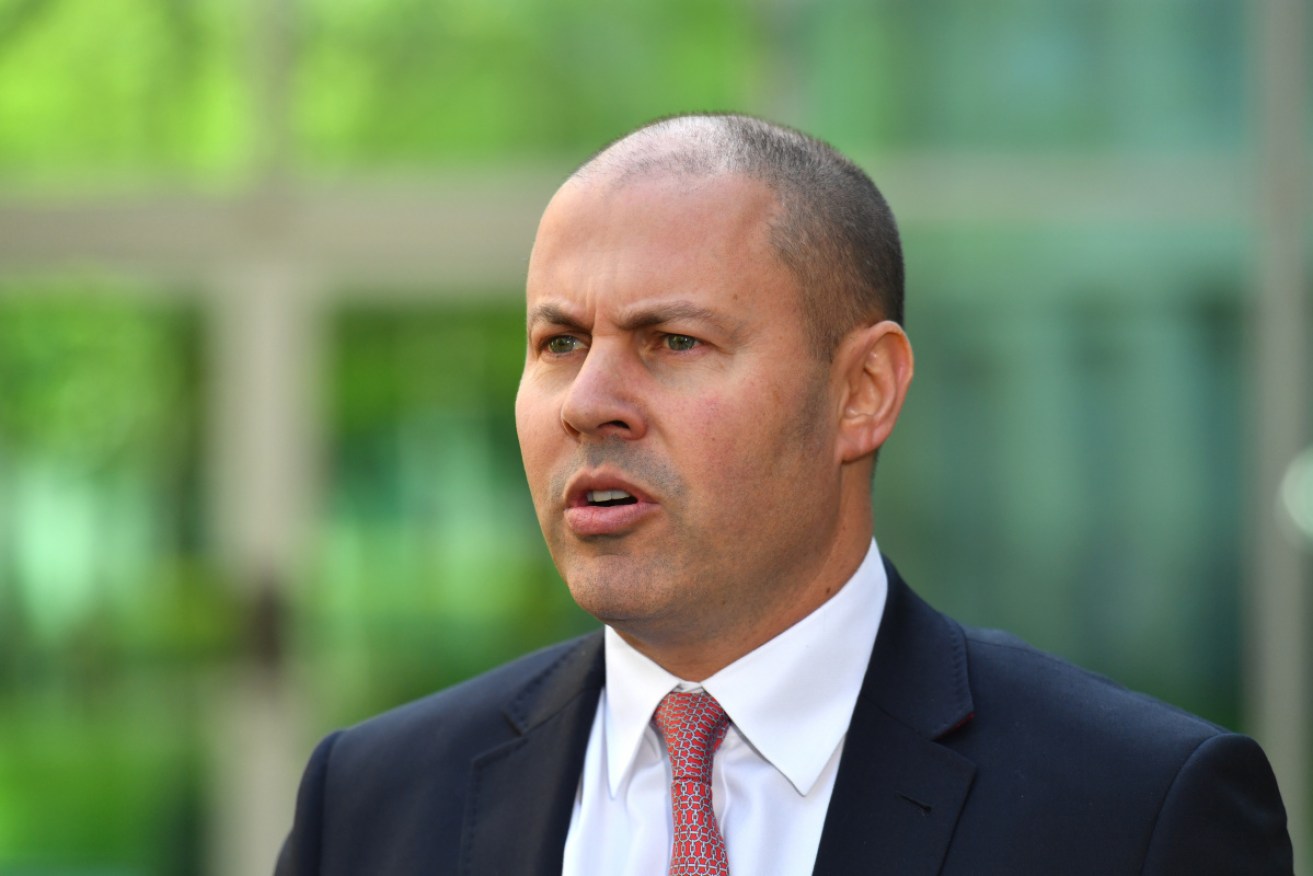Asking Australians to work for longer misses the point, says economist


Treasurer Josh Frydenberg said on Tuesday that Australians would need to work for longer. Photo: AAP
Asking older Australians to work for longer won’t help the economy as there aren’t enough jobs to go around.
That’s the call from leading economist Jim Stanford, who told The New Daily that Treasurer Josh Frydenberg’s push to get Australians working for longer betrayed a misunderstanding of the economic challenges facing the country.
“The problem we have is a shortage of jobs, not a shortage of people to do the jobs,” Dr Stanford said.
“Instead of telling older workers that they should stay in the labour market and work until they’re 70, we should be encouraging them to retire by giving them secure and decent pensions.
“And when they do that, they’ll be helping to make room for young people, who have got skills and energy but can’t find work.”
In an op-ed for The Australian Financial Review, Mr Frydenberg wrote that Australia’s ageing population was an economic time bomb that would “place new demands on our health, aged care and pension systems”.
He said this was partly because the ratio of working-age Australians to people aged over 65 was expected to fall to just 2.7 to 1 over the next four decades.
But Dr Stanford, who is the director of the Centre for Future Work, dismissed the Treasurer’s argument as “tired, misleading rhetoric”.
“His clichéd warning that somehow we’re going to run out of workers because people are getting old – it’s just economically wrong,” Dr Stanford said.
“We have a situation right now in Australia where there’s probably three million Australians who would like to work more than they are – including unemployed, underemployed, and people who haven’t even started looking because they don’t think there are jobs out there.”
The New Daily contacted the Treasurer’s office for comment, but didn’t receive a response.
Tweet from @JoshFrydenberg
The motivations behind the policy
According to Dr Stanford, the Treasurer’s “scare campaign” is a misguided attempt to reduce the cost of the aged pension.
He said the government should instead focus on growing the economy and creating jobs, so that it could comfortably cover its citizens’ retirement costs.
“The government and the Reserve Bank have got a responsibility … to use their policy tools to make sure there’s enough spending power in the economy to absorb all those workers [looking for more work], but they’ve been more concerned with other priorities,” Dr Stanford said.
“Frydenberg is going to stand up and pound his chest about balancing the budget.
“But that budget was balanced at the cost of the hardship of three million Australians, who want to [be working more] and should be working [more].”
The aging population is only a "ticking time bomb" if you lack the skills to have policies that:
. boost workforce participation,
. boost superannuation savings,
. boost wealth & home ownership,
. reform the tax system so older people use their estate to fund their longevity— Stephen Koukoulas (@TheKouk) November 19, 2019
Future challenges
Callam Pickering, APAC economist with global jobs site Indeed, agreed more jobs are needed.
But he said it made sense for Treasurer Frydenberg to discuss Australia’s ageing population before the demographic shift significantly affected the economy.
Australia’s unemployment rate ticked up to 5.3 per cent in October, after 19,000 jobs were lost from the economy.
And a range of economic indicators suggest the level of unemployment could rise even higher over the next three to six months.
Reversing this trend would require strong jobs growth, Mr Pickering said.
But a rapidly ageing population means Australia might run into labour shortages over the next decade or two.
“We know the impact of ageing on the Australian economy will get larger over time. We have seen that,” Mr Pickering told The New Daily.
“It gets a little bit bigger each and every year – and so it makes sense to recognise the issues early, and then take steps to address them in whatever policies the federal government deems appropriate.”
Tweet from @NationalSeniors
Fighting ageism
Mr Pickering said governments would face a tall order in getting Australians to work for longer, though.
While the Australian economy’s gradual transition from physically demanding jobs to desk-based roles has enabled Australians to work for longer, discriminatory hiring practices mean those made redundant in later life usually struggle to find another job.
Older Australians are terrified of losing their jobs in their 50s and 60s because they know how hard it is to get back into the workforce,’’ Mr Pickering said.
“Businesses have become better at employing older people, but I think there still are some ageist issues there – that is, if they have a candidate who is 40 and a candidate who is 55, they’ll inevitably lean to the younger candidate, even if they don’t have the same skills or experience.
“That sort of thinking will need to adjust in coming decades, because if it doesn’t, there’s going to be rising skills shortages and businesses are going to struggle to fill some roles.”








